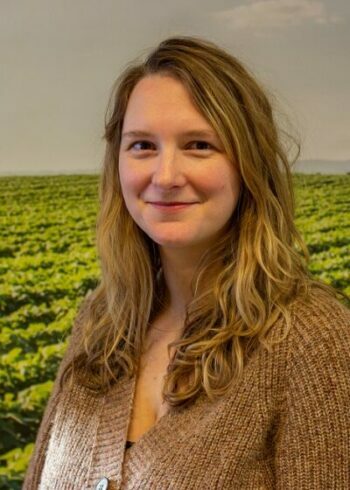Winner Bayer Grants4Tech Carbon Challenge

SoilCASTOR has won the international innovation Carbon Challenge hosted by Bayer Grants4Tech. Measuring soil carbon is crucial not only for soil health and productivity, but also for climate mitigation.
The Grants4Tech Carbon Challenge
The goal of the Bayer Grants4Tech Carbon Challenge was to identify solutions to measure soil carbon stocks which are scalable, cost-effective and robust (more info: here). In order to judge scalability and cost-effectiveness, participants were evaluated on sampling speed and the requirement to take laboratory samples. The SoilCASTOR solution requires around 3-5 minutes per sample and does not require lab samples at all. Furthermore, the participants were evaluated on accuracy - how close were the predicted carbon stocks as compared to lab-based carbon stocks? SoilCASTOR overall scored the highest in these categories.
The participants and the field
Six teams with different innovative technologies all met in Chicago to measure the carbon stocks in four different fields with varying land use practises. SoilCASTOR finished first in the challenge, combining both high accuracy and scalability of carbon stock estimates. Second and third place respectively went to the i-SOC team of the University of Utah and the satellite company Constellr. Other participants were YardStick, SoilOptix and ChrysaLabs. We enjoyed the collaboration with our colleagues working on innovative sensors measuring C stocks.
What technology does SoilCASTOR build on?
SoilCASTOR leverages sensor fusion: it combines satellite data, previously collected soil data and field-based Near-infrared (NIR) scanning to estimate the local soil carbon stocks. By leveraging this approach high resolution estimates can be attained (to a resolution of ten meters) which capture intra field variability and can capture changes in carbon stock over time. The approach requires around one sample per acre or one sample for every two hectares when one aims to estimate reliable C stocks on farm level (lower densities are required for regions). Robust results are attained with a minimum of thirty samples of 0-30 cm depth. A scientific publication describing the methods used will be online available soon.
Transforming data to carbon credits
The SoilCASTOR approach can generate results that are aligned with Verra carbon credit requirements. Our team has experts on soil carbon credit verification protocols. Furthermore, the Nutrient Management Institutes is also stakeholder in development of carbon offsetting protocols with VCS Verra. SoilCASTOR data aligns with the requirements set by the VCS Verra VD0042 and VMD0053 protocols. SoilCASTOR will soon become commercially available as the AgroCares Carbon Monitor.
Contact us
We're here to answer your questions and help you to get started with soil carbon monitoring
Contact our carbon stock experts
SoilCASTOR enables to measure accurately soil carbon stock at farm level and is developed by NMI, AgroCares and Wageningen University.
Office
Nieuwe Kanaal 7C, 6709 PA Wageningen, The Netherlands

